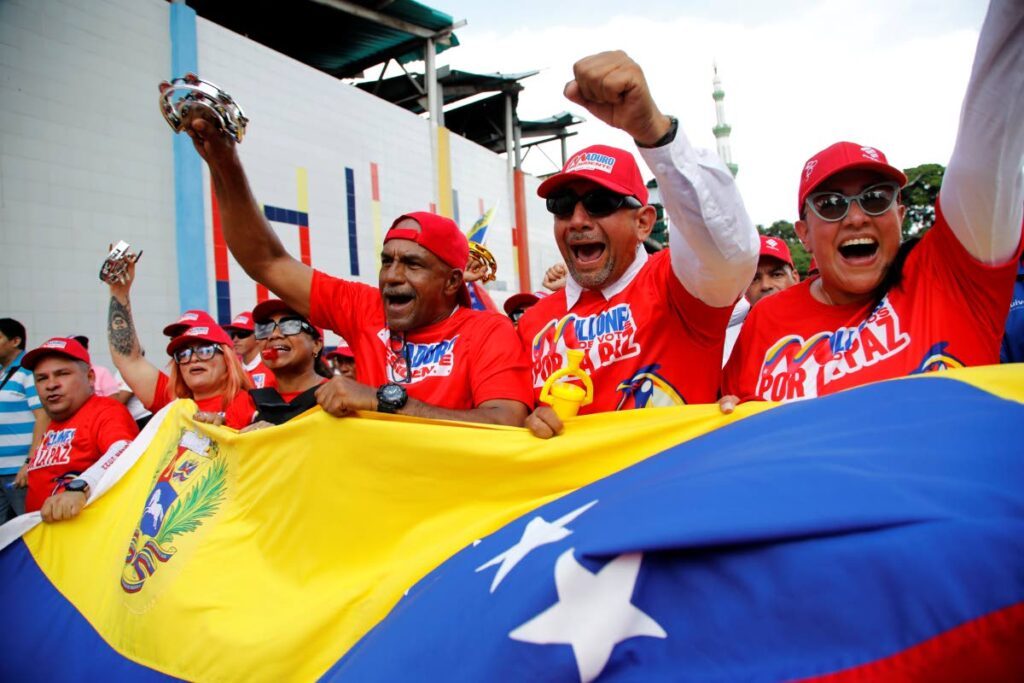Lee: Power shift in Venezuela could affect Trinidad and Tobago's energy deals

UNC Pointe-a-Pierre MP David Lee fears that a shift in power in Venezuela could be devastating for the Trinidad and Tobago government, given the energy deals it has been negotiating with the oil rich, South American nation over the past few years.
The Venezuelan presidential election, held on July 28, saw Nicolas Maduro return to power amid much controversy and social unrest.
The Venezuelan National Electoral College declared victory for Maduro with 51 per cent of the vote, ahead of 44 per cent for his main contender Edmundo Gonzalez.
But an Associated Press (AP) analysis of the vote tally sheets on August 2 by Venezuela’s main opposition revealed that their candidate won significantly more votes in the election that the government had claimed, raising concerns about the legitimacy of Maduro’s victory.
The analysis, which was carried in an article on August 3, said the AP processed almost 24,000 images of tally sheets, representing the results from 79 per cent of voting machines.
According to the tabulations, the Opposition’s Edmundo Gonzalez received 6.89 million votes, nearly half a million more than the government said Maduro won with. The tabulations showed he received 3.13 million votes from the tally sheets released.
Lee told Newsday during a phone interview on August 3 this development is cause for concern.
“It will have a great geo political effect on Trinidad and Tobago with respect to all of these energy deals that this present government, Prime Minister Rowley and the Minister of Energy Stuart Young has been negotiating for the last few years with this Maduro regime,” he said.
“If there is a new government in place with the new opposition, one would have to think that all of these negotiations that the present PNM government has done with Maduro could lead to zero effect and would have to re-negotiate or start all over again.
“That would have a drastic effect on our energy sector because the Opposition has always been saying that this government has placed all their eggs in the energy sector with the Venezuelan government.”
Lee continued, “So this is a very troubling issue if there is a new government in place and it is done properly, it will have an effect on the present government of Trinidad and Tobago. No matter what the Minister of Energy is trying to tell us that it will not have an effect one way or the other, I think he is trying to fool the population.”
Last month, Venezuela signed a 20-year natural gas production and exploration deal with bpTT and the National Gas Company of Trinidad and Tobago (NGC).
The agreement allows for production from the Manakin-Cocuina field, one of three natural gas fields that straddle the eastern border between Trinidad and Tobago and Venezuela.
It also allows for production from the Manakin-Cocuina gas field. Twenty-five per cent of production will go to Trinidad and Tobago’s petrochemical sector while the rest will feed Trinidad and Tobago’s LNG industry. Other deals are also being negotiated.
Lee said a radical shift in power can also have far-reaching consequences for Venezuela.
“If this is factual and true, which has yet to be substantiated by the National Electoral Council, which is the equivalent to our EBC (Elections and Boundaries Commission) because they have not validated these numbers.
“But if this is true, it puts a scary or spin on the whole country of Venezuela because this might lead to more civil unrest, which we have seen taking place within the last week because the population will feel that the election has been stolen from them, if Maduro or the National Electoral Council does not produce the official tally sheets.”
At the close of the Caricom heads of government meeting on July 30, chairman Grenada Prime Minister Dickon Mitchell said Caricom had no official position on the results of the Venezuelan presidential election.
He added, “Elections in Venezuela are a domestic matter first.”

Comments
"Lee: Power shift in Venezuela could affect Trinidad and Tobago’s energy deals"